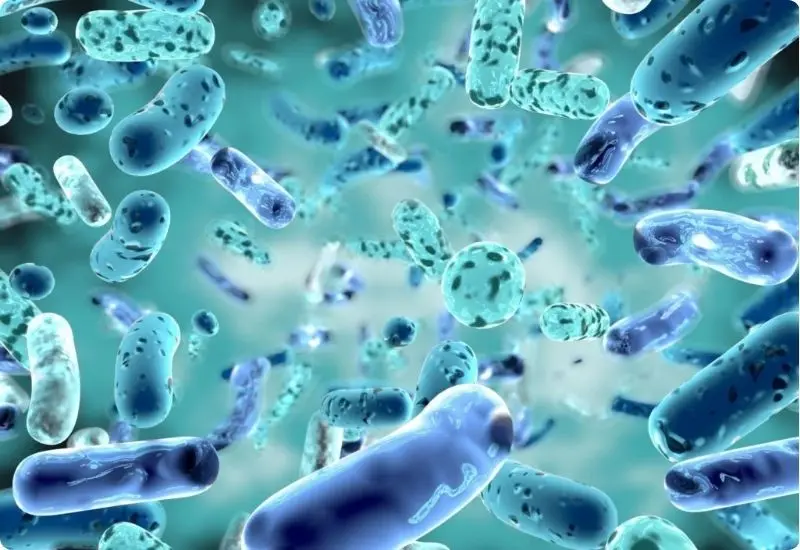
In the world of health and wellness, probiotics have gained significant attention as a solution for maintaining gut health. Widely available on pharmacy shelves, their benefits go beyond just digestion. But what exactly are probiotics, and how can they be used effectively to support overall health? Let’s explore in detail.
What Are Probiotics?
Probiotics, commonly defined as live microorganisms, are beneficial bacteria or yeasts that, when consumed in adequate amounts, confer health benefits to the host. In simpler terms, probiotics are the “good bacteria” that support digestion, enhance immunity, and help fight off diseases.
These microorganisms are not just supplements prescribed for digestive disorders but are also used therapeutically for conditions such as irritable bowel syndrome (IBS), chronic constipation, and infectious diarrhea. Additionally, even healthy individuals can benefit from probiotics by reducing symptoms like bloating, gas, and occasional constipation.
Among the many types of probiotics, the two most prevalent bacterial groups are Lactobacillus and Bifidobacterium. Yeasts like Saccharomyces boulardii and certain strains of E. coli are also increasingly being studied for their probiotic potential. These probiotics are often found in various forms, including capsules, tablets, powders, and liquids.
While dietary sources such as yogurt and fermented foods naturally contain probiotics, synthetic supplements are often preferred due to their higher concentrations, longer shelf life, and ease of use. On the other hand, natural probiotic sources are deemed safer and more holistic, often free from side effects, and do not typically require a prescription.

What Are Probiotics?
How Beneficial Bacteria Improve Digestive Health
Probiotics function primarily by fostering a healthy gut environment. They combat harmful bacteria, restore a balanced microbiome, and strengthen the gut’s immune defenses. In particular, they:
- Reducing Diarrhea Severity: Probiotics can shorten the duration of infectious diarrhea, including traveler’s diarrhea and diarrhea caused by antibiotics.
- Easing Constipation: They facilitate softer stools, improve bowel regularity, and enhance gut motility.
- Alleviating IBS Symptoms: Probiotics reduce bloating, abdominal discomfort, and irregular bowel movements associated with IBS.
- Preventing Gut Infections: By inhibiting the growth of harmful bacteria, probiotics protect the intestinal lining from pathogenic attacks.
- Boosting Immunity: Probiotics enhance the immune system’s ability to fend off infections, both within the gut and throughout the body.
- Promoting Gut Barrier Function: They help maintain the integrity of the intestinal lining, preventing the absorption of harmful toxins.

How Beneficial Bacteria Improve Digestive Health
Probiotics for Specific Digestive Disorders
1. Diarrhea
Numerous studies confirm that probiotics can prevent or treat diarrhea caused by long-term antibiotic use. They also mitigate the severity and duration of acute infectious diarrhea in both adults and children.
2. Constipation
Probiotics are beneficial for those struggling with constipation. They work by softening stools and increasing bowel movement frequency, thereby easing discomfort.
3. Irritable Bowel Syndrome (IBS)
Probiotic supplements have shown significant promise in managing IBS. Regular intake can reduce symptoms like bloating, abdominal pain, and irregular stools, benefiting both adults and children with this condition.
4. Inflammatory Bowel Disease (IBD)
Probiotics may serve as an adjunct to conventional treatments for conditions like ulcerative colitis. They help in reducing inflammation and preventing disease relapse when used alongside prescribed therapies.
Potential Risks of Misusing Probiotics
While probiotics are generally safe, improper use or overuse can lead to unwanted effects, particularly in individuals with compromised immune systems or severe illnesses. Risks include:
- Infections: In rare cases, probiotics may cause infections, especially in vulnerable populations.
- Toxin Production: Certain probiotic strains might produce toxins that affect gut health.
- Gene Transfer Risks: Probiotics can potentially transfer antibiotic resistance genes to other gut bacteria.
To avoid such complications, consulting a healthcare professional is crucial when introducing probiotics, especially for at-risk groups like premature infants or immunocompromised individuals. For most people, incorporating probiotics through natural food sources, like fermented products, may be a safer and equally effective approach.
Types of Probiotics
Bacterial Strains
- Lactobacillus: Found in yogurt and fermented foods, it aids in digestion and helps with conditions like diarrhea and lactose intolerance.
- Bifidobacterium: Known for its presence in dairy products, this strain supports gut health and alleviates IBS symptoms.
Yeast Strains
Saccharomyces boulardii: A beneficial yeast, it helps combat antibiotic-associated diarrhea and traveler’s diarrhea while supporting overall gut health.
Benefits of Probiotics
Let’s break it down into key aspects and provide further insights.
1. Improved Digestive Health
Probiotics are widely recognized for their role in maintaining and enhancing digestive health. They contribute to the balance of gut flora, which is crucial for effective digestion and nutrient absorption. Key benefits include:
- Regulating bowel movements: Probiotics, such as those in the Lactobacillus and Bifidobacterium groups, help manage conditions like diarrhea and constipation by improving stool consistency and transit time.
- Alleviating symptoms of Irritable Bowel Syndrome (IBS): Clinical evidence supports that probiotics reduce bloating, abdominal pain, and irregular bowel habits associated with IBS.
- Reducing antibiotic-associated diarrhea: Probiotics counteract the disruptive effects of antibiotics on gut microbiota by replenishing beneficial bacteria.
2. Enhanced Immune System
Probiotics play a vital role in strengthening immune function. They stimulate the production of immune cells and antibodies that help the body combat infections. Mechanisms include:
- Boosting gut barrier function: By forming a protective lining in the gut, probiotics prevent harmful pathogens and toxins from entering the bloodstream.
- Producing antimicrobial substances: Certain probiotics produce acids and other compounds that inhibit the growth of harmful bacteria.
- Promoting systemic immunity: The presence of healthy gut bacteria influences immune responses beyond the digestive system, enhancing overall resilience to diseases.
3. Gastrointestinal Disease Prevention Strategies
Probiotics are therapeutic in managing various gastrointestinal disorders, such as:
- Inflammatory Bowel Disease (IBD): Probiotics help reduce inflammation and symptoms in conditions like ulcerative colitis, often as an adjunct to conventional treatments.
- Lactose intolerance: Probiotics aid in breaking down lactose, reducing symptoms like bloating and diarrhea in lactose-intolerant individuals.
- Small Intestinal Bacterial Overgrowth (SIBO): Probiotics can restore balance by outcompeting harmful bacteria in the small intestine.
4. Support for Mental Health
The gut-brain axis highlights the deep connection between our digestive system and our mental well-being. Probiotics may:
- Reduce stress and anxiety: Some probiotic strains, such as Lactobacillus rhamnosus, influence neurotransmitter production, including serotonin.
- Alleviate depressive symptoms: Improving gut microbiota balance may positively impact mood and cognitive function.
5. Skin Health
Probiotics benefit skin conditions by reducing inflammation and promoting a balanced microbiome. Applications include:
- Managing acne: Probiotics decrease skin inflammation and regulate sebum production.
- Eczema relief: Some studies suggest probiotics reduce the severity and frequency of flare-ups in eczema-prone individuals.
6. Support for Weight Management
Probiotics may contribute to weight control by influencing metabolism and appetite regulation. Mechanisms include:
- Reducing fat absorption: Certain probiotic strains limit the amount of dietary fat absorbed in the intestine.
- Regulating hunger hormones: Probiotics affect hormones like ghrelin, potentially reducing overeating.
7. Mitigation of Allergies
Probiotics can moderate immune responses, reducing the severity of allergic reactions. For example:
- Managing seasonal allergies: Probiotics reduce inflammatory markers and histamine release.
- Decreasing food allergies: By enhancing gut barrier integrity, probiotics prevent allergen entry into the bloodstream.
8. Long-Term Disease Prevention
Probiotics contribute to preventing chronic illnesses, such as:
- Heart disease: Probiotics lower cholesterol levels and blood pressure.
- Diabetes management: Improved gut health supports better glucose metabolism.

Benefits of Probiotics
Conclusion
Often called “good bacteria,” probiotics support digestive function. From preventing diarrhea and easing constipation to managing IBS and boosting immunity, their benefits are extensive. However, their usage should be approached thoughtfully, considering individual health conditions and consulting professionals when necessary.
For those seeking to incorporate probiotics into their routine, starting with natural sources like yogurt or fermented foods can be a safe and effective option. Supplements, while potent, should be chosen carefully to ensure they meet specific health needs.
Ultimately, probiotics represent a natural and promising way to enhance gut health and overall well-being. By understanding their functions, benefits, and proper use, you can harness their full potential for a healthier life.
Related Articles
The Importance of Shrimp Nurseries in Modern Aquaculture
Shrimp nurseries play a vital role in advancing the shrimp farming industry. Properly designed and ...
Optimizing Pond Circulation for a Healthy and Vibrant Ecosystem
Pond circulation is a critical aspect of maintaining a clean, healthy, and balanced pond ecosystem. ...
The Importance of Water Circulation: Why It Matters and How to Optimize It
Water circulation is a vital aspect of maintaining water quality and ensuring proper functioning in ...
Beyond Probiotics: Do You Need Both Probiotics and Prebiotics?
Maintaining a healthy gut is crucial for overall well-being, and two key players in this process are ...
Pond Preparation: A Comprehensive Guide to Optimizing Your Aquaculture System
Pond preparation represents the foundation of successful aquaculture operations, serving as the ...
Designing Your Dream Pond: How to Design the Perfect Pond for Your Landscape
Ponds serve as captivating features in any landscape, offering both aesthetic appeal and functional ...






